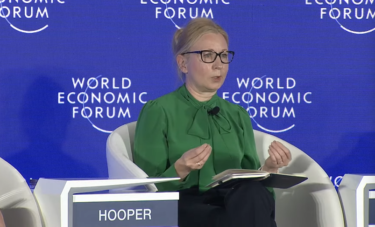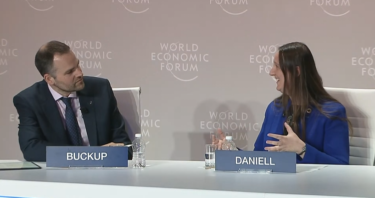A massive internet outage in Canada occurs on the same day the Russian-based, WEF-backed annual cybersecurity training exercise Cyber Polygon was originally supposed to take place.
Cyber Polygon 2022 was originally slated for July 8, but was postponed on May 25, and a new date still hasn’t been set.
July 8, 2022 was also the date that Canadian telecoms giant Rogers experienced a major network outage that “disrupted nearly every aspect of daily life, cutting banking, transport and government access for millions, and hitting the country’s cashless payments system and Air Canada’s call center,” according to Reuters.
“We all know, but still pay insufficient attention to, the frightening scenario of a comprehensive cyber attack, which would bring a complete halt to the power supply, transportation, hospital services, our society as a whole” — Klaus Schwab, Cyber Polygon 2020
“The Rogers network outage disrupted nearly every aspect of daily life, cutting banking, transport and government access for millions, and hitting the country’s cashless payments system and Air Canada’s call center” — Reuters
The fallout from Friday’s outage was similar to what World Economic Forum (WEF) founder Klaus Schwab had warned about at Cyber Polygon 2020, only he was speaking about a comprehensive cyberattack, and not a “maintenance update,” which was what Rogers President and CEO Tony Staffieri blamed for the outage.
Speaking at Cyber Polygon 2020, Schwab remarked, “We all know, but still pay insufficient attention to, the frightening scenario of a comprehensive cyber attack, which would bring a complete halt to the power supply, transportation, hospital services, our society as a whole.”
Fast forward to July 8, 2022 and communications were paralyzed for millions of Canadians, affecting healthcare services, law enforcement, and debit card transactions.
“A single day without the internet would cost our economies more than $50 billion, and that’s before considering economic and societal damages should these devices be linked to essential services, such as transports or healthcare” — World Economic Forum, January, 2021
Prior to Cyber Polygon 2021, the WEF released a short video on January 18, 2021 warning that:
“A single day without the internet would cost our economies more than $50 billion, and that’s before considering economic and societal damages should these devices be linked to essential services, such as transports or healthcare.”
According to the WEF video above, “The only way to stop the exponential propagation of a COVID-like cyber attack threat is to fully disconnect the millions of vulnerable devices from one another and from the internet.”
In the case of Rogers, CEO Staffieri said on Saturday, July 9, 2022 that the telecoms giant was able to restore connectivity by disconnecting specific equipment and redirecting traffic, “which allowed our network and services to come back online over time as we managed traffic volumes returning to normal levels.”
Before being postponed by Russian host BI.ZONE, the 2022 edition of Cyber Polygon was set to focus on “Digital Resilience in the Cloud Age.”
Cyber Polygon 2021 simulated “a targeted supply chain attack on a corporate ecosystem in real time,” with discussions centered around a desire to immunize the internet, demonize cryptocurrencies, and prop-up centralized systems of governance through a closer merger of corporations and states (public-private partnerships).
Cyber Polygon 2020 operated under the theme: “digital pandemic: how to prevent a crisis and to reinforce cybersecurity on all levels.”
“A cyber attack with COVID-like characteristics would spread faster and farther than any biological virus” — World Economic Forum, 2021
On July 22, 2021, less than two weeks after Cyber Polygon 2021, an internet outage briefly took down many websites belonging to major banks, airlines, big tech, and media organizations.
Launched in 2019, Cyber Polygon is an annual cybersecurity training exercise put on by BI.ZONE, in collaboration with the World Economic Forum and Interpol.
Headquartered in Moscow, BI.ZONE has been a subsidiary of Sberbank of Russia since 2016, and it was established to “to detect cyber threats and intrusion attempts, as well as to carry out security system audits for the largest bank in Russia.”












